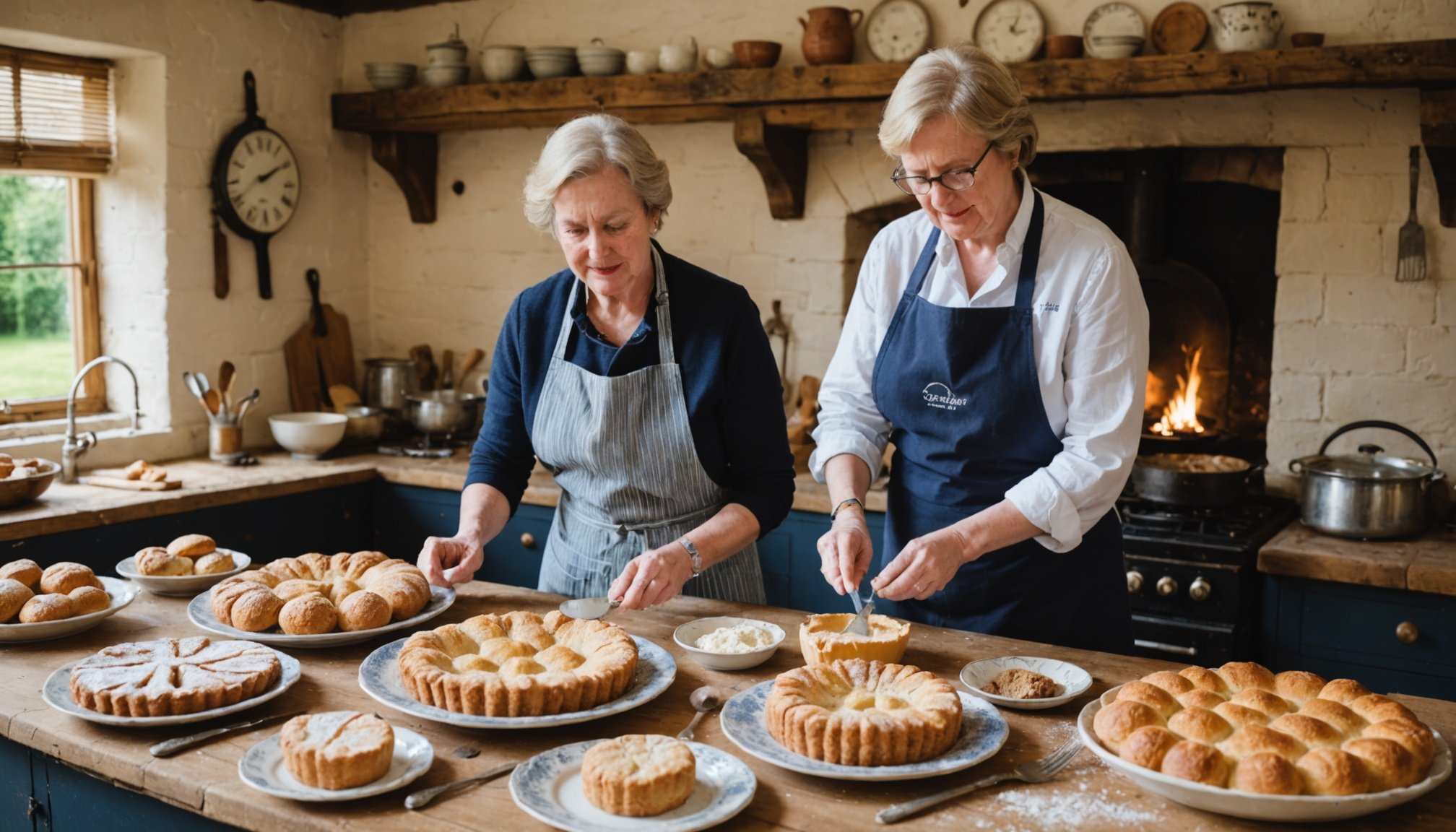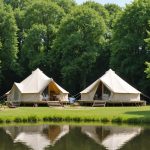Overview of Baking Workshops in Rural England
In the heart of rural England, British baking workshops offer an immersive experience for those eager to explore the art of traditional baking. These classes are not your average kitchen experience; they’re hands-on adventures that immerse participants in the rich heritage of British baking. Imagine wandering through the rolling countryside, apron donned, ready to begin your culinary journey.
Participants in these workshops are introduced to a variety of baked goods, each steeped in tradition. You’ll learn to craft everything from scones and crumpets to more elaborate pastries and breads. The emphasis is on understanding the nuances of techniques behind each creation, ensuring participants leave with a newfound confidence in the kitchen.
Have you seen this : Discover Hidden Royal Histories: Dive into British Monarchy with Captivating Guided Palace Tours
What makes these workshops truly unique is the opportunity to learn from local experts. These bakers bring years of experience and an intimate understanding of traditional methods passed down through generations. Their insights add depth to each session as they share tips and stories that enrich the learning experience.
In this idyllic setting, you’ll not only enhance your baking repertoire but also gain a deeper appreciation for British culinary traditions. These workshops provide an authentic taste of rural England, both figuratively and literally.
Topic to read : Unlock great savings with esim discount codes for maya!
Techniques and Recipes Taught in the Workshops
Baking enthusiasts attending British baking workshops in rural England have the opportunity to delve into traditional British recipes.
Workshops cover a comprehensive range of baking techniques, immersing participants in the intricacies of crafting authentic British baked goods. Techniques such as kneading, folding, and decorating are taught in detail. Participants gradually refine skills through expert instruction and practise.
Techniques Covered
These workshops provide insights into essential skills:
- Kneading and proofing dough for optimal rise and texture
- Folding and laminating pastry for flakiness
- Decorating cakes and pastries with finesse
Participants learn through guided practice, improving their baking acumen in a supportive environment.
Featured Traditional Recipes
These immersive classes introduce a selection of cherished British baked goods. Recipes such as scones and Victoria sponge cake are staples, each carrying historical significance. For instance, the Victoria sponge, popularised during Queen Victoria’s reign, remains iconic. Additionally, participants are guided through the creation of mince pies, linked to festive traditions.
By exploring these recipes, participants gain skills and a profound connection to Britain’s culinary heritage. Their journey culminates in a well-rounded experience of the nation’s rich baking traditions.
Location and Atmosphere of the Workshops
Nestled amidst the enchanting landscapes of rural England, these baking workshops offer a serene escape that greatly enhances the learning experience. The workshop locations are chosen for their scenic beauty, providing a tranquil environment that stimulates creativity and focus. Rolling hills, lush fields, and historic buildings often serve as the backdrop, enveloping participants in the charm of the countryside.
Learning in a rural setting presents unique advantages. There’s an opportunity for a more intimate and personalised experience, away from the hustle of city life. This setting encourages camaraderie among participants, allowing for shared insights and experiences, which are highly valued aspects of these workshops.
One of the standout features of these rural locations is the integration of local ingredients in the baking process. The use of fresh, locally-sourced produce not only enhances the flavour and authenticity of the baked goods but also connects participants to the area’s agricultural heritage. Exploring how local ingredients are thoughtfully incorporated into recipes deepens this understanding and appreciation of rural England.
In essence, the blending of the picturesque surroundings and vibrant flavours creates an all-encompassing baking experience, making each workshop both educational and memorable.
Participant Reviews and Experiences
Attending baking workshops in rural England offers an enriching experience, much more than just learning to bake scones and other traditional recipes. Participant testimonials frequently highlight the unique, intimate atmosphere fostered in these rural England baking classes. Many newcomers to the art of British baking workshops have shared delightful stories of camaraderie and personal growth during their time in the countryside setting.
Success Stories
Participants’ success stories often revolve around discovering a new passion for baking. One frequently cited success story involves a novice baker who went from never touching dough to crafting perfectly risen breads by the end of the workshop. Under the guidance of seasoned instructors, participants gain not only skills but confidence in their culinary abilities. Emphasis is placed on trying new techniques and recipes, even if they might initially seem challenging.
Ratings and Feedback
The overwhelming feedback from attendees showcases satisfaction, with many rating their experiences as “exceptional” or “highly rewarding.” Common themes in feedback often praise the patience and expertise of instructors, as well as the thorough, hands-on curriculum. The picturesque location frequently informs positive reviews, enhancing the overall experience, leaving an indelible mark on those fortunate enough to participate.
Enrollment Process and Preparation Tips
Enrolling in a baking workshop in rural England is a straightforward process designed to get you on your way to mastering traditional British recipes. Begin by exploring available dates and venues through the workshop’s main website. Early registration is encouraged, as these popular classes often fill up quickly.
Once enrolled, prepare by gathering essential items that will enhance your experience. Participants are advised to bring a notebook for jotting down insights and recipes, an apron, and comfortable footwear for long hours in the kitchen. A good attitude and readiness to learn are vital, along with an eagerness to engage with fellow enthusiasts and local experts.
To maximise your experience, research the techniques to be covered, and familiarise yourself with the basic baking tools provided. This preparation ensures you can focus on absorbing new skills and enhancing your understanding.
Arrive with an open mind and willingness to try new things. This mindset sets the stage for effective learning and enjoyment. While many come to these workshops for technical skills, the shared experiences and connections formed are often cited as some of the most rewarding aspects. Remember, learning should be as enjoyable as the final, delicious outcomes.











